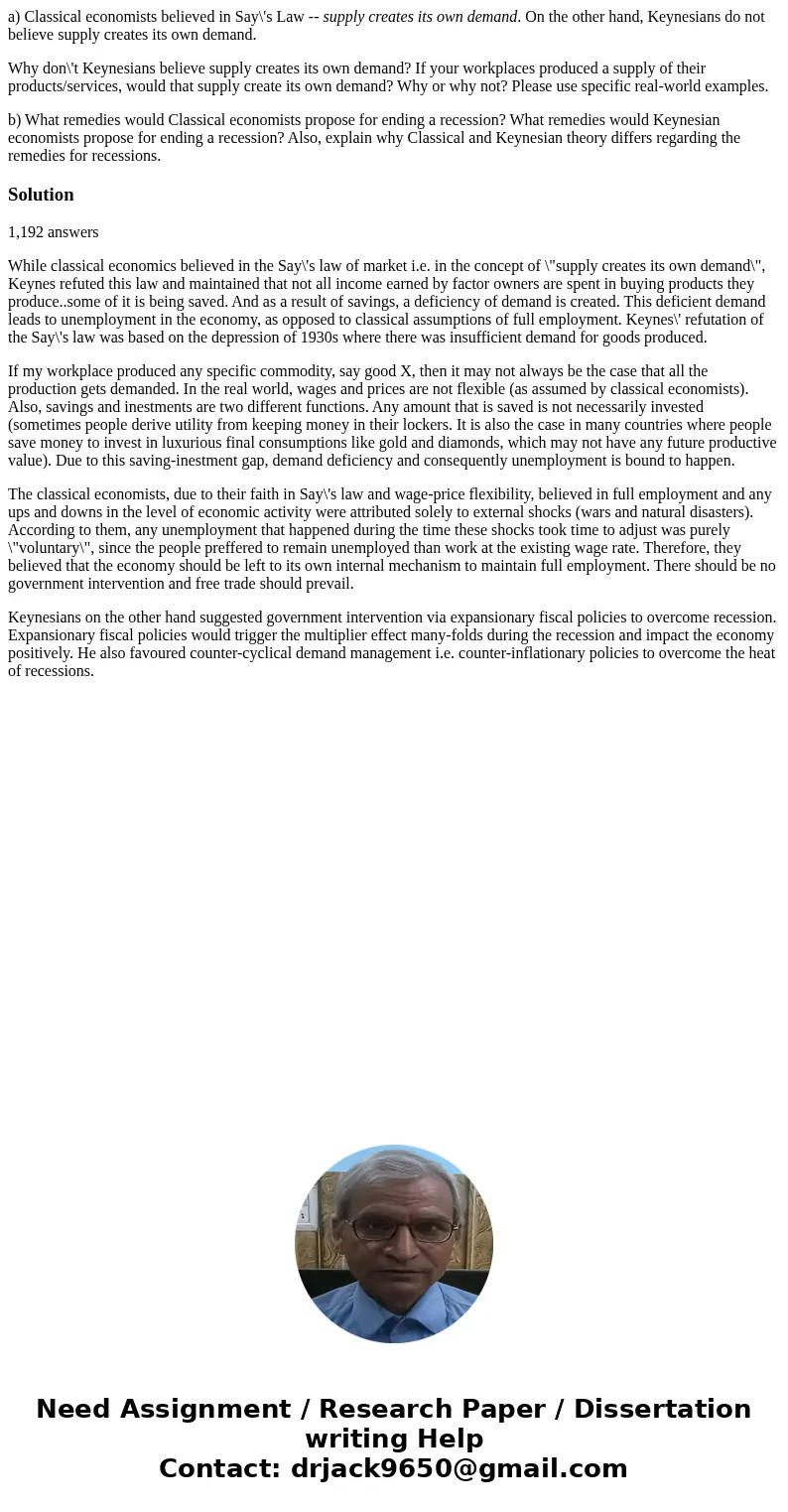a Classical economists believed in Says Law supply creates
a) Classical economists believed in Say\'s Law -- supply creates its own demand. On the other hand, Keynesians do not believe supply creates its own demand.
Why don\'t Keynesians believe supply creates its own demand? If your workplaces produced a supply of their products/services, would that supply create its own demand? Why or why not? Please use specific real-world examples.
b) What remedies would Classical economists propose for ending a recession? What remedies would Keynesian economists propose for ending a recession? Also, explain why Classical and Keynesian theory differs regarding the remedies for recessions.
Solution
1,192 answers
While classical economics believed in the Say\'s law of market i.e. in the concept of \"supply creates its own demand\", Keynes refuted this law and maintained that not all income earned by factor owners are spent in buying products they produce..some of it is being saved. And as a result of savings, a deficiency of demand is created. This deficient demand leads to unemployment in the economy, as opposed to classical assumptions of full employment. Keynes\' refutation of the Say\'s law was based on the depression of 1930s where there was insufficient demand for goods produced.
If my workplace produced any specific commodity, say good X, then it may not always be the case that all the production gets demanded. In the real world, wages and prices are not flexible (as assumed by classical economists). Also, savings and inestments are two different functions. Any amount that is saved is not necessarily invested (sometimes people derive utility from keeping money in their lockers. It is also the case in many countries where people save money to invest in luxurious final consumptions like gold and diamonds, which may not have any future productive value). Due to this saving-inestment gap, demand deficiency and consequently unemployment is bound to happen.
The classical economists, due to their faith in Say\'s law and wage-price flexibility, believed in full employment and any ups and downs in the level of economic activity were attributed solely to external shocks (wars and natural disasters). According to them, any unemployment that happened during the time these shocks took time to adjust was purely \"voluntary\", since the people preffered to remain unemployed than work at the existing wage rate. Therefore, they believed that the economy should be left to its own internal mechanism to maintain full employment. There should be no government intervention and free trade should prevail.
Keynesians on the other hand suggested government intervention via expansionary fiscal policies to overcome recession. Expansionary fiscal policies would trigger the multiplier effect many-folds during the recession and impact the economy positively. He also favoured counter-cyclical demand management i.e. counter-inflationary policies to overcome the heat of recessions.

 Homework Sourse
Homework Sourse